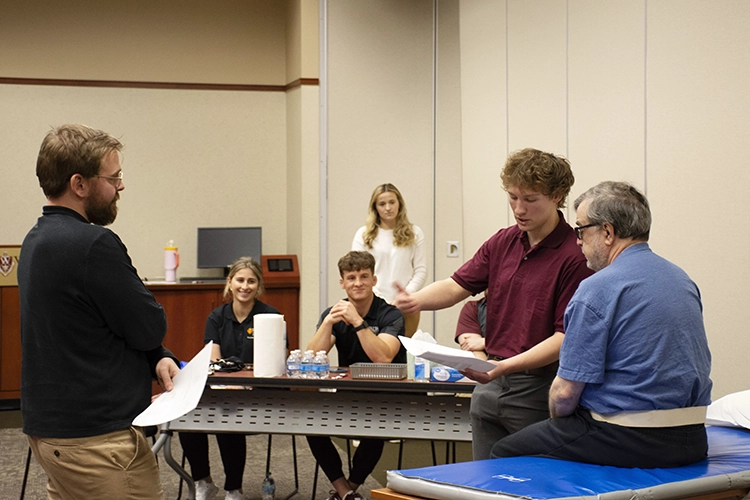Program Vision
Our vision is to expand access to physical therapy services that empower individuals and communities.
Program Mission
The mission of Walsh University's Doctor of Physical Therapy (DPT) program is to develop physical therapy professionals who are leaders in service and contemporary care through the integration of scientific knowledge, mindful reflection, and humanistic values grounded in the Judeo-Christian tradition.
Program Goals
Building upon a liberal arts foundation, our graduate program develops students into competent physical therapy providers by emphasizing core values and essential characteristics, consistent with the mission of the program and the profession. Our program goals are:
1. Optimize Human Movement
Prepare physical therapists to optimize human movement among diverse populations, conditions, and environments.
2. Cultivate Ethical Critical Thinkers
Cultivate ethical critical thinkers who prioritize patient-centered care.
3. Engage in Service
Engage in service to support the needs of our profession, communities, and society.
4. Foster Clinical Excellence
Foster clinical excellence, professionalism, and innovations that improve healthcare outcomes.
5. Inspire Healthcare Leaders
Inspire physical therapy professionals to be leaders who transform healthcare.

Program Overview
Our Approach
- Student-centered, values-based teaching emphasizing clinical decision-making, evidence-based practice, and community service
- Curriculum focused on major body system impairments with integrated healthcare business concepts
- Active learning and case study methods to develop critical thinking skills
Program Structure
- 32-month, eight-semester program including two summers
- Built on basic sciences and problem-solving foundation
- Develop expertise in patient examination, diagnosis, intervention, teaching, and scientific inquiry
- Faculty-mentored, evidence-based capstone project
- Four full-time clinical experiences plus additional part-time patient encounters
- Comprehensive exam preparation for national licensing
Learning Environment
- Dedicated faculty guidance for leadership, service, and professional development
- In-person learning with weekly classroom meetings and practical demonstrations
- Online components integrated where appropriate
- Academic schedules typically feature four-day classroom weeks, with full-time clinical experiences scheduled according to individual site requirements
- Students engage in textbook study, professional literature review, case analysis, skills practice, exam preparation, and reflection on their learning beyond scheduled class time to support academic and professional development
- Develops ethical clinical reasoning and empathy
- Collaboration with occupational therapy students in foundational courses
- Professional networking in dedicated health sciences graduate student lounge

